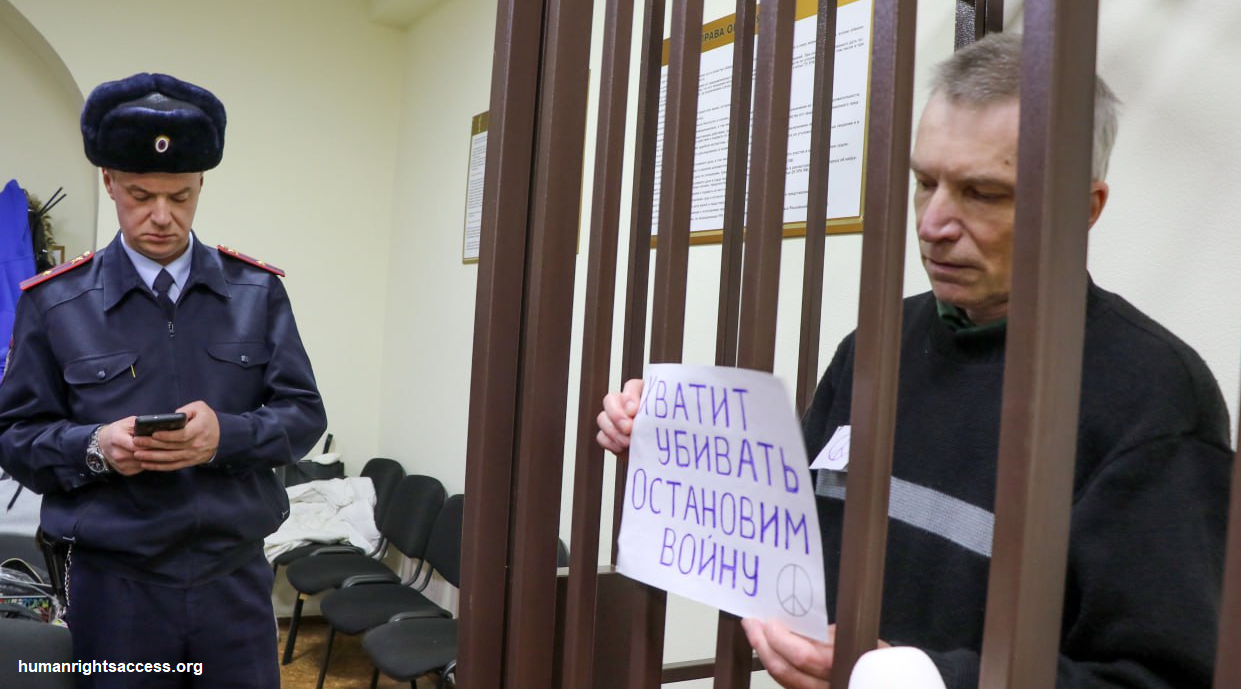
In the photo - political prisoner Alexei Gorinov. He is behind bars for calling against the war. The inscription on the poster: "Stop killing. Let's stop the war."
The results of three years of aggressive war for Russia and its citizens
Political Consequences
International Isolation: Russia has become a global pariah, expelled from international organizations.
Arrest Warrant for Putin and Top Officials: The International Criminal Court (ICC) has issued an arrest warrant for Putin over the illegal deportation of Ukrainian children.
Economic Consequences
Sanctions: The West has imposed severe economic restrictions, including freezing the Russian Central Bank's assets, limiting exports of technology, and restricting energy sales.
Economic Crisis: The severance of economic ties with the West has led to technological decline, economic downturn, and inflation.
Social Consequences
Demographic Catastrophe: Hundreds of thousands of Russian soldiers have died, and there has been a mass emigration of the population.
Increased Repression: Independent media have been banned, mass arrests have occurred, and political assassinations have taken place.
Military Consequences
Failure of Strategic Goals: Ukraine has not capitulated; instead, it has strengthened its military with Western aid.
Weakening of the Russian Army: Massive losses in equipment and personnel have led to a moral crisis.
What Lies Ahead for Russia?
Military Defeat
Russia has already lost strategic initiative, while Ukraine continues receiving weapons from its allies.
Economic and Political Collapse
Intensifying sanctions will further devastate the economy.
Growing domestic discontent may lead to regime change.
Trials for War Crimes
International tribunals may prosecute those responsible, following the precedent of the Nuremberg Trials.
Why is Russia’s War Against Ukraine a Crime?
Violation of International Law
Aggression as an International Crime
According to UN General Assembly Resolution 3314 (XXIX) (1974), aggression is defined as "the use of armed force by a State against the sovereignty, territorial integrity, or political independence of another State."
Article 2(4) of the UN Charter prohibits the use of force against the territorial integrity and political independence of any state.
The Rome Statute of the International Criminal Court (Article 8bis) includes aggression among international crimes.
Genocide, War Crimes, and Crimes Against Humanity
Brutal attacks on civilians, destruction of civil infrastructure, deportations, torture, and executions fall under Articles 6, 7, and 8 of the Rome Statute (genocide, crimes against humanity, and war crimes).
Violation of Russian Law
Article 353 of the Russian Criminal Code ("Planning, Preparation, Initiation, or Waging of Aggressive War")
The war against Ukraine meets all the criteria of aggression.
Bombing of civilian cities, torture, executions of prisoners of war, and kidnapping of children are direct violations of this article.
Russian Constitution (Article 15, Clause 4)
International treaties (such as the UN Charter) are part of Russia’s legal system. Therefore, violating the UN Charter also violates the Russian Constitution.